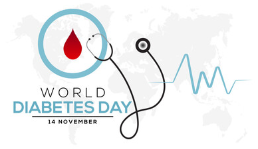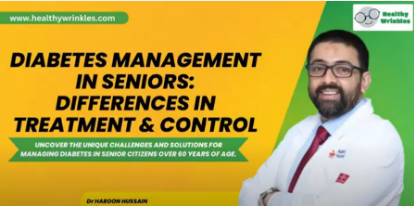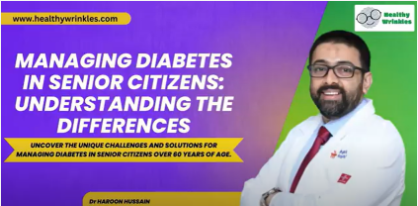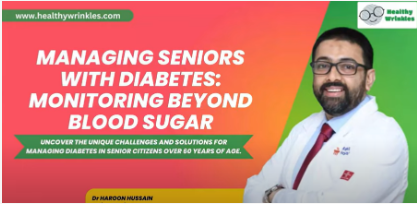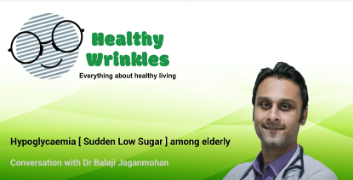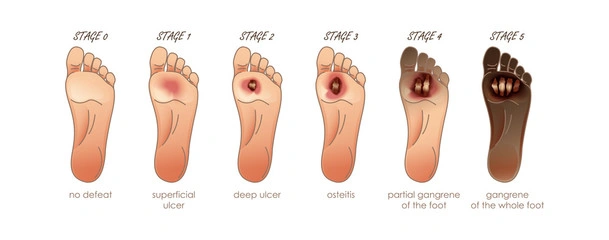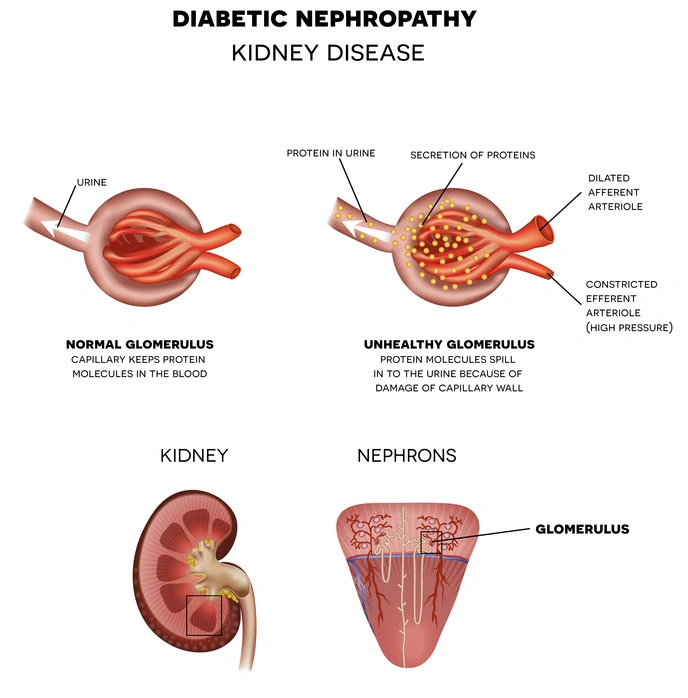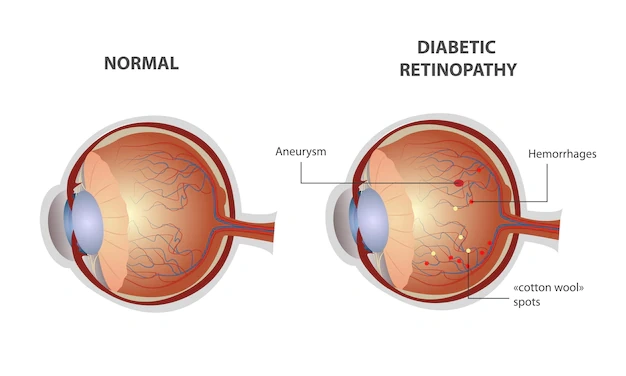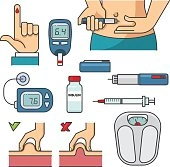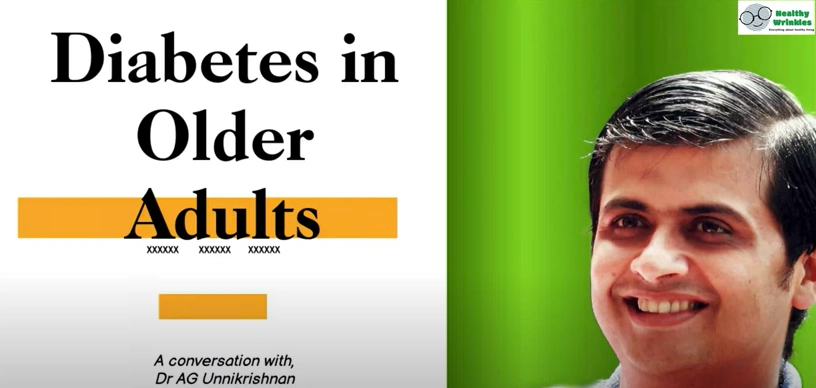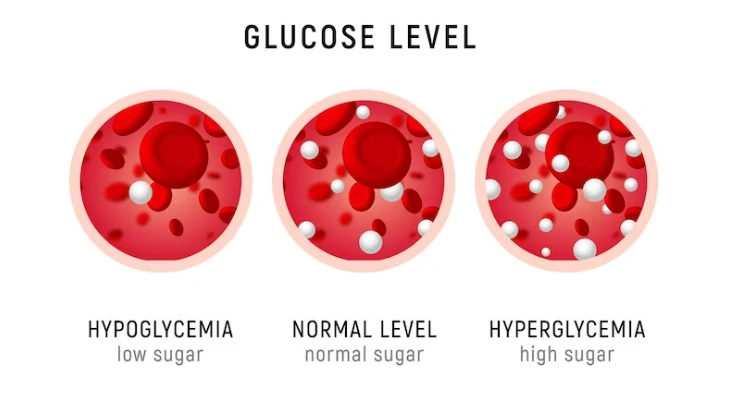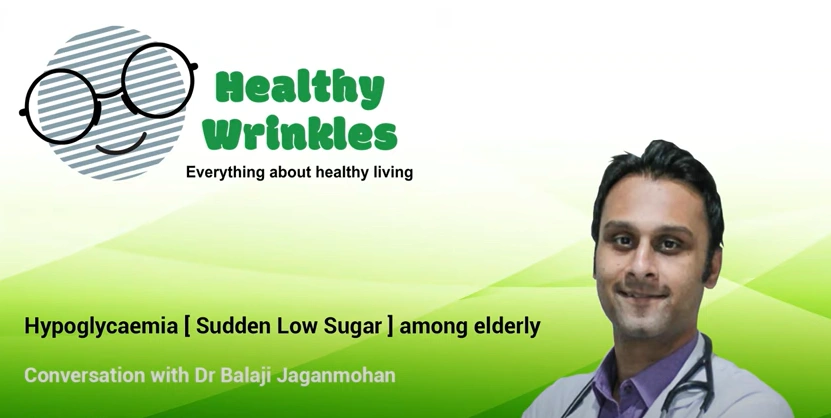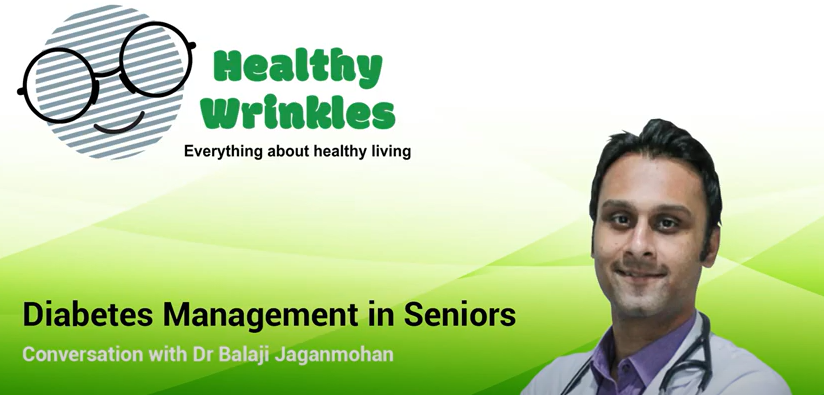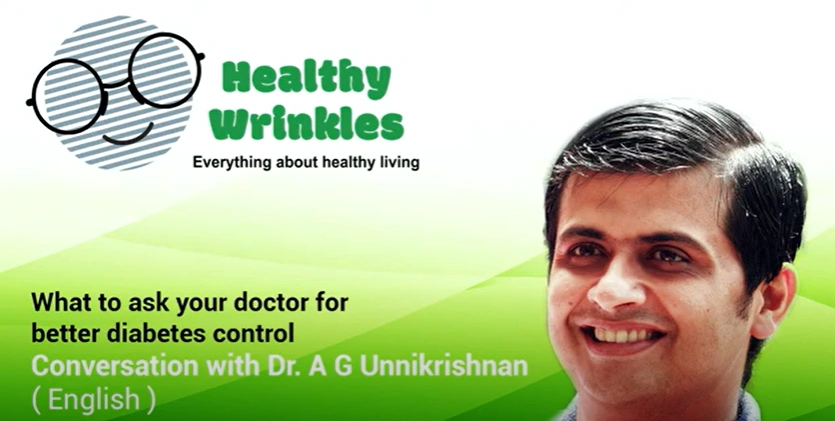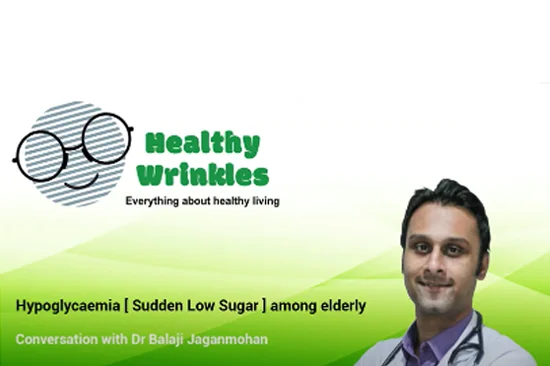Managing Hypoglycemia in Senior Citizens A Vital Guide for Diabetes Care
25-06-24
Dr. Balaji Jaganmohan, a renowned diabetologist at Apollo Hospitals, in a conversation with Healthy Wrinkles, explains understanding Hypo in diabetes. So, let's dive right in and explore the world of "Hypo" and diabetes management.
Watch our YouTube playlist on diabetes(Madhumeha) to know more.
What is Hypoglycemia?
Hypoglycemia is essentially a state in which blood sugar levels drop below a certain range, typically defined as 70 milligrams per deciliter by international guidelines. When blood sugar falls to around 55 milligrams per deciliter, the body's defense mechanisms kick in. Counter-regulatory hormones such as glucagon, epinephrine, cortisol, and growth hormone are released, triggering various symptoms. At this level, typically 55 and below, it's the hormone epinephrine that elicits an adrenergic symptom response. This includes feelings of dizziness, hunger, trembling hands and legs, excessive sweating, and even stammering while speaking. These warning signs indicate that the body needs action to correct low blood sugar. If blood sugar drops below 30, it becomes extremely dangerous, potentially leading to coma or neuroglycopenic symptoms that can result in unconsciousness, requiring third-party assistance. Learn more about diabetes in seniors from our experts.
Understanding Whipple's Triad
- To diagnose hypoglycemia, physicians often refer to Whipple's triad, a helpful framework that helps identify the condition. Whipple's triad consists of three key components:
- Symptoms: Patients exhibit symptoms suggestive of hypoglycemia when blood sugar falls below 55 mg/dl.
- Blood Sugar Measurement: Documentation of low blood sugar levels using a glucometer is essential for diagnosis.
- Correction with Oral Carbohydrates: If consuming carbohydrate-containing food raises blood sugar levels promptly, it further supports the diagnosis. One or more of these components must be present to label someone as having hypoglycemia. Even if the symptoms are present but not the other criteria, it's still indicative of the condition.
Special Considerations for Elderly Patients
Why should we be more cautious when dealing with hypoglycemia in elderly individuals compared to younger adults? Elderly individuals are more likely to experience complications related to hypoglycemia. Most elderly patients have been living with diabetes for a long time, possibly taking multiple oral hypoglycemic agents (OHAs), insulin, or sulfonylureas. Many may also have hepatic or renal impairments. Additionally, a condition known as "hypoglycemia unawareness" or "hypoglycemia-associated autonomic failure" affects some elderly individuals. In these cases, patients do not experience the typical symptoms when blood sugar reaches 54 mg/dl, and they can rapidly progress to the neuroglycopenic stage, potentially leading to unconsciousness. View Doctor At Home. For elderly individuals, it's crucial to identify any coexisting conditions and tailor treatment accordingly. Sometimes, glycemic control may need to be relaxed, with an HbA1c target set at 7% to 8% or even higher. Hypoglycemia can be more life-threatening than hyperglycemia, as it can trigger arrhythmias and lead to cardiovascular events, cognitive impairment, coma, and even death. Read more about the role of geriatrician in managing chronic health conditions.
Impact of Hypoglycemia on the Body
Hypoglycemia primarily affects the brain's functioning. Interruptions in glucose supply to the brain can result in short-term memory loss. Repeated episodes of hypoglycemia have been linked to an increased risk of dementia. The heart is another organ commonly affected, as it can trigger arrhythmias, potentially leading to cardiovascular death. Studies suggest that glycemic variability, particularly with hypoglycemic fluctuations, can worsen diabetes-related complications such as retinopathy, nephropathy, and neuropathy, and increase the risk of stroke or myocardial infarction.
- Recognizing Signs of Hypoglycemia: If you are caring for an elderly individual with diabetes, it's crucial to be aware of the signs and symptoms of hypoglycemia. This knowledge can help you respond effectively and potentially save a life.
- Symptoms: Educate yourself about the symptoms of hypoglycemia, which can include dizziness, hunger, trembling, excessive sweating, and speech difficulties.
- Carry Glucose: Ensure the individual has a source of fast-acting glucose on hand, such as candy or a liquid glucose drink. Avoid chocolates, as their fat content can slow down the absorption of glucose.
- Emergency Information: Create a card stating that the person is diabetic and at risk of hypoglycemia. Keep this card with them, so in case they become unconscious in a public place, others can quickly identify the situation and seek medical assistance.
Conclusion
Managing hypoglycemia in senior citizens is of paramount importance. Elderly individuals with diabetes are more vulnerable to its complications, making early recognition and prevention critical. By understanding the signs, keeping glucose sources readily available, and being prepared for emergencies, you can contribute to the safety and well-being of your elderly loved ones.
Whether you are searching for informative articles, or looking for healthcare providers, Healthy Wrinkles is an excellent resource for all your senior care needs. We also have a great compilation of all the medical expert talks for healthy aging on Healthy Wrinkle YouTube channel.
"Join the cause and make a difference in a senior's life - share your knowledge about local senior care resources today!"
Disclaimer: Healthy Wrinkles does not recommend or offer any medical diagnosis, treatment, or advice. The information provided here is only for the awareness of disease or ailment among individuals, caregivers, and the public. The advice of doctors, licensed professionals, or therapists who are knowledgeable about your particular situation should always be sought before using the information provided here. It should also not be used in the event of a medical emergency or for the diagnosis or treatment of any medical condition. If you want urgent assistance, contact a qualified medical professional. Additionally, the information represents the author's views and not those of Healthy Wrinkles.
